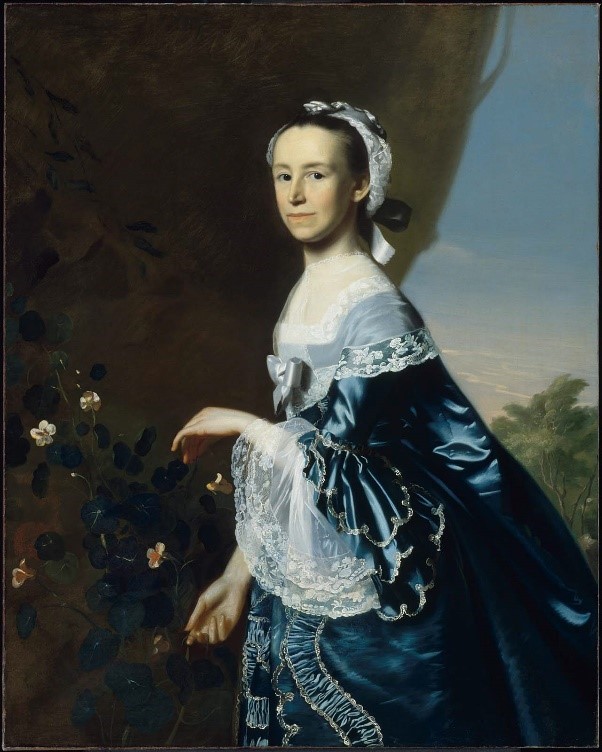
About Mercy Otis Warren
Mercy Otis Warren, born in West Barnstable in 1728, was a playwright, a historian, a pioneer in women’s rights, a champion of liberty, an advocate of the Bill of Rights, and a patriot. In an era where it was unusual for women to be educated, much less to emerge as a leader, her advocacy for the cause of patriotism and a central role for women in society was remarkable.
Mercy Otis Warren was the third of thirteen children and first daughter of Colonel James Otis (1702–1778) and Mary Allyne Otis (1702–1774). The family lived in West Barnstable, Massachusetts. Mary Allyne was a descendant of Mayflower passenger Edward Doty. James Otis, Sr., was a farmer, and attorney, who served as a judge for the Barnstable County Court of Common Pleas. He won the election to the Massachusetts House of Representatives in 1745. He was an outspoken opponent and leader against British rule and against the appointed colonial governor, Thomas Hutchinson.
The Otis children were raised in the midst of revolutionary ideals. Although Mercy had no formal education, she studied with the Reverend Jonathan Russell while he tutored her brothers Joseph and James in preparation for College. Unlike most girls of the time who were simply literate, Warren wanted to learn as much as she possibly could. She devoured book after book, learning about history and language. This set her apart from other girls, and most likely paved the way for her to break the traditional gender roles of her time. Her father also had unconventional views of his daughter’s education, as he fully supported her endeavors, which was extremely unusual for the 18th century. James Otis attended Harvard College and became a noted patriot and lawyer. What little of his correspondence with Mercy survive suggests that James encouraged Mercy’s academic and literary efforts, treating her as an intellectual equal and confidante.
She married James Warren on November 14, 1754, and they settled in Plymouth, where Mercy began the literary and political crusade that led her to become a premier woman of the American Revolution. Her husband was Mercy’s greatest supporter. Recognizing that his wife had extraordinary talents, he refused to suppress her endeavors. Mercy went on to write pamphlets and publish plays containing political satire that opposed British officials in New England.




